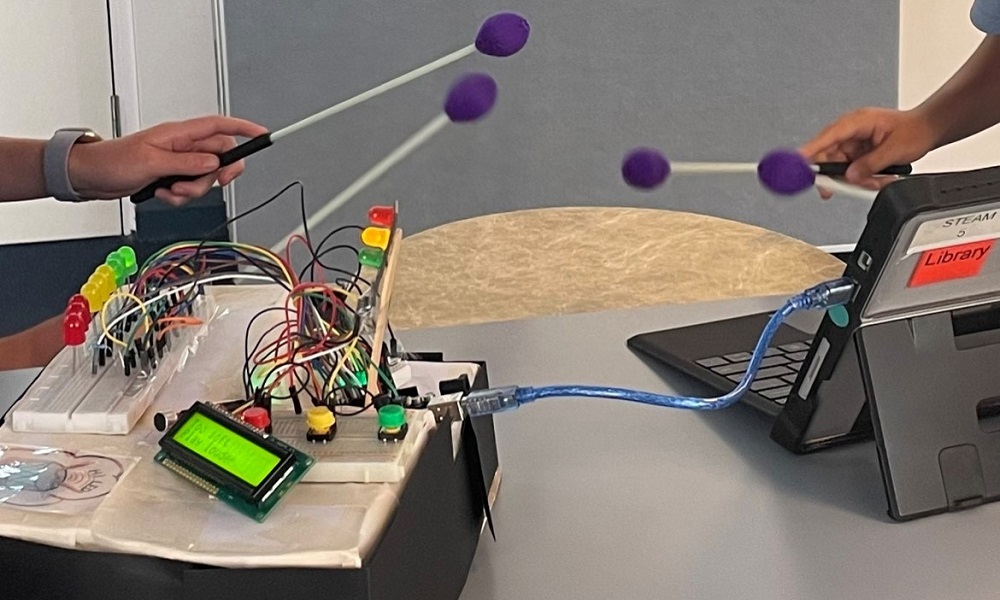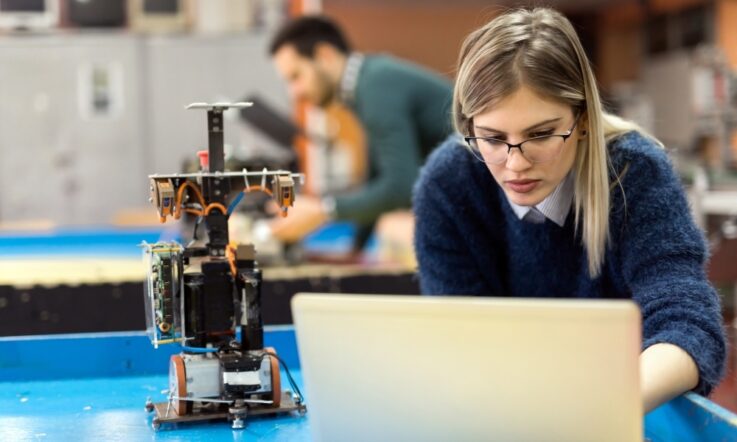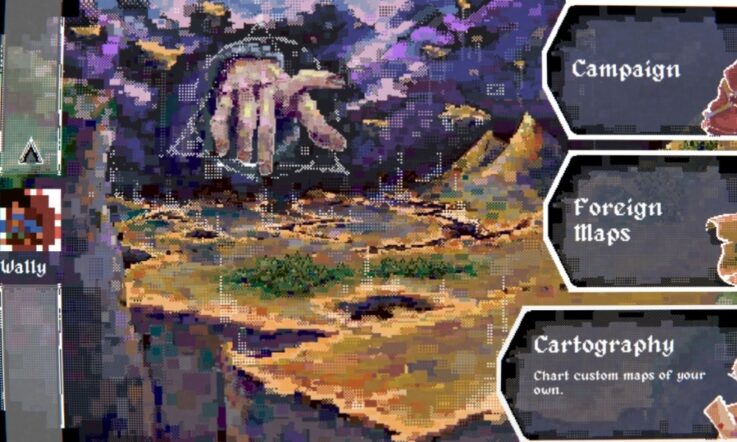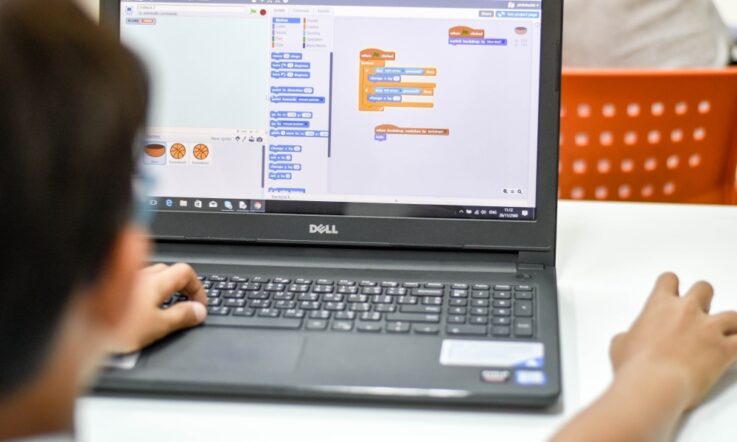Helping students to develop their skills in the general capabilities is essential for preparing them to succeed in a modern society. Giving students opportunities to be innovative is one way to develop their skills in this area.
At St Hilda’s Anglican School for Girls in Perth, Western Australia, primary school students are given these opportunities through the school’s STEAM (Science, Technology, Engineering, Arts and Mathematics) program.
Within the STEAM program at the K-12 school, primary students participate in CSIRO’s STEM Professionals in Schools program, which facilitates partnerships between schools and local STEM professionals to increase teacher and student knowledge in the field.
Karen Donnelly, Head of Extension in the Junior School at St Hilda’s, says their involvement in the CSIRO initiative began a few years ago when the current STEAM program was being established. ‘We wanted something really different and challenging for our older girls because we really wanted to engage them. We came across Arduino … a computer and programming system,’ she tells Teacher.
Establishing community partnerships
‘We contacted somebody that we knew and we asked her if she might be interested in partnering with us. And she was really excited to join the [STEM Professionals in Schools] program,’ Donnelly shares. ‘She runs the program with our Year 6 girls. So, she comes in and they all complete about eight workshops with her and run through the Arduino and coding program with me and her.’
In addition to the STEM Professionals in Schools program, Year 6 students can also extend their skills further by electing to participate in the national Young ICT Explorers competition. Last year, a team of two St Hilda’s students won second place with a device they invented to help those with a hearing impairment learn to play the drums. They used their knowledge of Arduino to bring it to life.
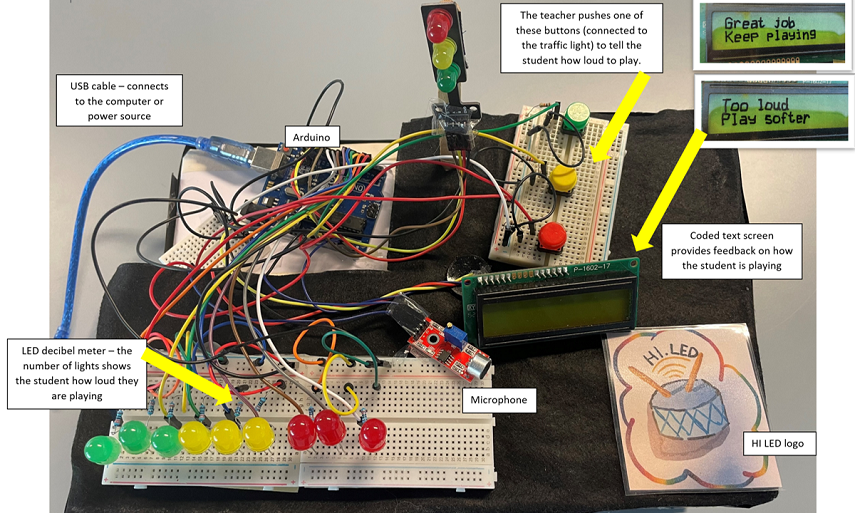
[The device created by the students. Image supplied]
The device works by measuring the decibel levels the drummer is registering, and displaying a message on a screen with instructions such as ‘too loud’ or ‘too soft’ while they’re playing. It also allows for teachers to use lights to give instructions to the player.
Addressing community needs
The students were inspired to create this tool after identifying an area of need at a local school.
‘Our Year 6 girls, they do some community service projects and one of the things they do is they go to a local primary school which has a hearing-impaired department and they help with The Breakfast Club,’ Donnelly explains.
‘So when we were thinking about ideas for our Young ICT Explorer competition, we always just throw out, “what problems have you come across in your home, at school, in the environment?” … And they started talking about the visits to The Breakfast Club, so they decided that they might ask one of the teachers there what problems the students had and see if they could come up with a solution for them.’
One music teacher mentioned that learning to drum in music lessons has been challenging for students with a hearing impairment. So, the device was invented to help solve this problem.
Fostering entrepreneurship from the early years
Considering real-world problems which impact the students themselves, or their community, is something that is fostered in the STEAM program at St Hilda’s from the early years onwards.
For instance, with STEAM students in Year 1, Donnelly uses problems posed in picture books as the basis for learning activities. An activity the students have really enjoyed is, after reading The Very Brave Bear by Nick Bland, they are tasked with building a bridge so the bear can get across a river filled with crocodiles.
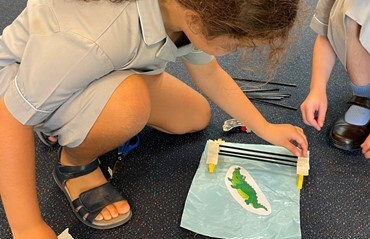
‘We go from solving problems for characters and stories, and then they might solve problems for themselves – they might look at a problem like litter in the school. So, those simple, everyday problems,’ Donnelly says. ‘And then at the Year 6 end, they're really homing in on big problems and very personalised problems. We’ve done [the Young ICT Explorers competition] for quite a few years and we’re blown away by the things they come up with.’
‘[As a school] we are really looking at that innovation, creativity and entrepreneurial spirit as really part of where we're going, because we know that students need more than academic results going into the future,’ Donnelly says. ‘There's a lot more that we're going to need in the future and that's what we're doing, trying to future-proof students with this kind of approach.’
Think about how you will be supporting students to develop skills in the general capabilities this term. What opportunities are there for students to be innovative?
As a teacher, what kinds of real-world problems are you incorporating into your lessons? Is there a mix of small, everyday problems, and bigger issues faced by your local community or wider society? Which real-world problems have you found to be the most engaging for students?
